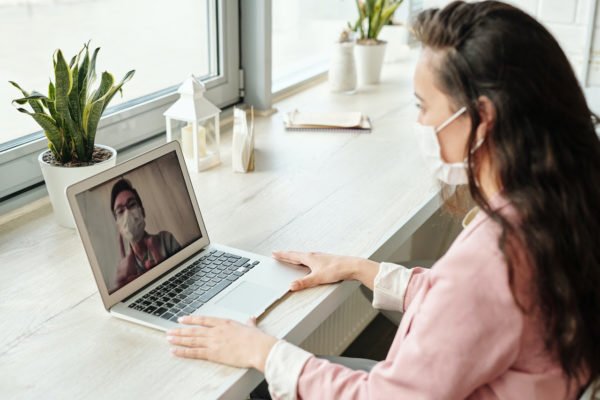As UK employees start to return to the workplace as COVID-19 lockdown measures ease further, what can businesses learn from China’s recovery?

Many business offices, factories, and more have been reopened for months now in China. Many of these workplaces can’t yet return to their previous ways of work, and some workplaces may never actually do businesses the way they used to.
Early learnings from Asian countries suggest transparency and flexibility are vital in return-to-workplace plans. A lot of what China has done can be deemed successful, and we should all take what they’ve done on board in our own plans to safely re-open the workplace.
Health and safety comes first
Health and safety is hugely important at the moment, and ensuring the safety of staff and customers rightly comes first. China efficiently rolled out in-facility safeguards such as masks, hand sanitiser, employee temperature screenings, social distancing, and more! They also ensured regular cleaning schedules for all buildings and facilities. British businesses should follow suit and also ensure social distancing in offices, reduce or remove “hot desking” facilities, and restrict the amount of people allowed in certain rooms and shared areas such as the canteen or break rooms. Other takeaways from China, is to use tactics such as staggered start times, or a phased return to work. Perhaps introduce alternate-day schedules to reduce the amount of staff in the workplace at any one time.
Communication is vital
Bad communication is one of the main reasons remote workers are not productive. China used all regular top-down communication channels to their advantage, including emails and intranets to communicate proactively with employees about returning to work plans. Chinese firms also ensured there was a channel for bottom-up communication and listening to employees. In these uncertain and worrying times, UK businesses should create opportunities for employees to have one-on-ones and other channels to allow employees to express any concerns freely with their line manager. Sometimes even if this means leveraging more informal communication channels to make it easy for them to ask questions and raise concerns regarding returning. One Chinese business surveyed employees a month after they began returning to the workplace to ask how they felt about the level of safety, the return experience, and more.
Use employee data to provide support
Businesses in China have collected and monitored a variety of employee data to help inform their return-to-workplace plans. A wide range of data is available to businesses, including employee health information; location and travel history; commuting options; family dynamic, and recent interactions with COVID-19 patients. UK businesses who are collecting this data need to be transparent about why the information is needed and articulate the benefits for the individual employee, not just the organisation, and provide opportunities for employees to provide or refuse their consent. This can help businesses be reactive if needed if there is a localised COVID-19 breakout, and also for employee performance. Certain data can measure and monitor employee engagement, mindset and comfort regarding their return to the workplace — and continue to monitor once employees have returned.
Evolve from lockdown learnings
Lockdowns across the world have pushed workplaces and workforces to adapt. The crisis response has highlighted many productive behaviours that should be continued once employees return to their workplace. Many businesses and employees have proven they can be efficient remotely, so business leaders should capture these new processes that have contributed to their productivity and roll them out full time. This could include a new process for managing remote employees. Many online tools and platforms were suddenly researched and rolled out for use during the crisis, such as Slack or Zoom. And many of these should be used more routinely when we al return to work under “normal” business conditions. We would advise evaluating long-term plans for remote working as employees are likely to want the flexibility of working from home after this pandemic passes. Seeing businesses from across the world come out of lockdown successfully, brings much hope to the UK. We can all learn from them and use to our advantage in the fight against COVID-19.
